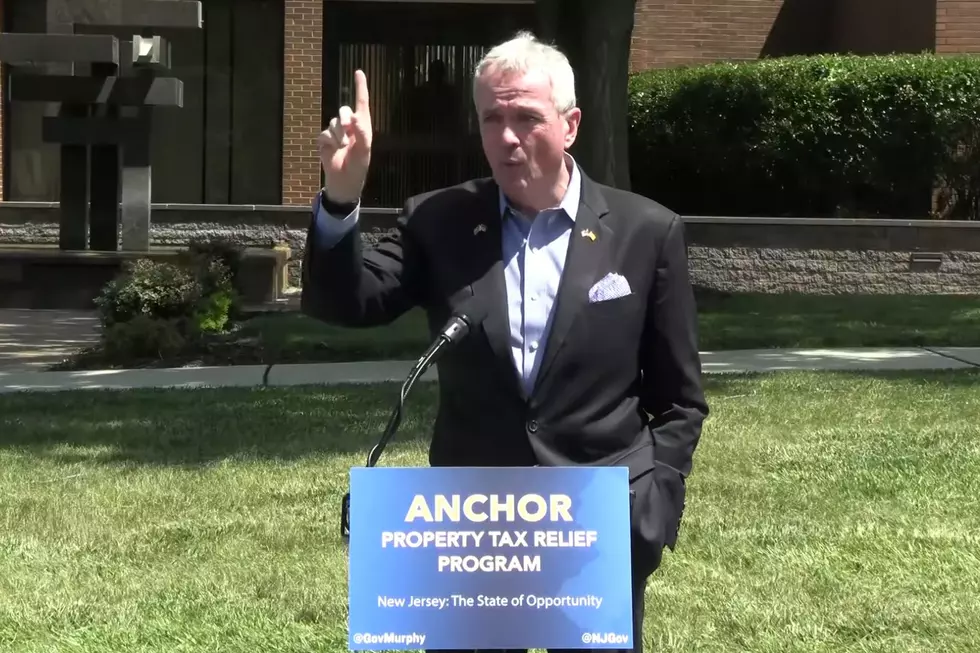
Lawmakers approve adding $4.5 billion to NJ’s credit card
A legislative panel signed off Monday on having New Jersey increase its bonded debt more than 10% by borrowing $4.5 billion to balance its 2021 operating budget.
“In my mind, in my mind’s eye, I think of this as more of a line of credit than as a mortgage,” said Assembly Speaker Craig Coughlin, D-Middlesex. “We’ll borrow it all but without having to take it if we can avoid it.”
The state law enacted in July that allowed the state to potentially borrow as much as $9.9 billion through general obligation bonds, which was upheld with limits by the state Supreme Court, included a requirement that the final borrowing plan be approved by a temporary Select Commission on Emergency COVID-19 Borrowing.
The commission consists of four Democrats: Coughlin, Senate President Steve Sweeney, D-Gloucester, and the chairs of the two budget committees: Sen. Paul Sarlo, D-Bergen, and Assemblywoman Eliana Pintor Marin, D-Essex.
The state’s bonded debt obligations, as of the end of 2019, was $44.4 billion – down from a peak of $46.1 billion in 2017. The COVID borrowing will push that up to around $50 billion.
Add in the state’s $173 billion in non-bonded obligations – primarily, nearly $94 billion for pensions and $76 billion for health benefits for retired public workers – and the total obligation is nearly $218 billion. And that’s down from a peak of nearly $262 billion in the projections for 2017.
The debt service payment in fiscal 2019 was $3.9 billion.
Business groups spoke out against the borrowing, even though the budget approved last week by Democratic lawmakers counted on the $4.5 billion as a source of revenue.
“The longstanding impact of the borrowing cannot be understated. Adding to the state’s already enormous debt which can only lead to higher taxes on already overburdened residents and businesses,” said Hilary Chebra, manager of government affairs for the Chamber of Commerce Southern New Jersey.
“New Jersey is already one of the most indebted states in the nation and should the $4.5 billion in borrowing be approved, it will come with extraordinary high levels of interest that would take years to pay off on the backs of New Jerseyans,” Chebra said. “It is quite likely that this level of borrowing will cause New Jersey to receive a downgrade in credit and fiscal outlook.”
Chris Emigholz, vice president of government affairs for the New Jersey Business and Industry Association, said he hopes the Legislature does “everything possible to limit that borrowing as the fiscal year advances.”
“If revenues turn out to be closer to the OLS projection or even rosier than that, hopefully that can reduce the level of borrowing and get to that less debt service that we all want,” he said. “If federal relief comes in a new form before the election, after the election, from President Trump or President Biden, hopefully we can use that to reduce the level of borrowing and not for new spending.”
Coughlin said the borrowing plan allows for it to repaid quickly, if conditions allow.
“We’re hopeful that the revenue figures will be strong, that assistance from Washington will come and allow us to minimize the amount of money we borrow,” Coughlin said.
Sweeney said lawmakers expect that if there’s an increase in federal aid, it will be used to reduce the borrowing. He said he didn’t disagree with the business groups’ testimony.
“They’re right,” Sweeney said. “These are tough times. We have to be very judicious with borrowing. And we have to make sure if we get better numbers and things improve that it goes to reduce the borrowing.”
The Murphy administration said in a report to the Legislature that it hasn’t determined how much of the bonds will be sold to the Municipal Liquidity Facilities created by the Federal Reserve in response to the pandemic and how much will be sold in the public capital markets through a negotiated sale.

As of the Federal Reserve’s most recent update, dated Sept. 8, two entities had borrowed money through the Municipal Liquidity Facility. Illinois borrowed $1.2 billion in June, and the New York Metropolitan Transit Authority borrowed more than $450 million in August.
The bonds sold to the Federal Reserve would have a 36-month maturity, the longest allowable, and an estimated interest rate of 2.19%.
The state intends for the bonds sold in the public capital markets to have a 12-year maturity and an estimated net interest cost of 2.5%.
Michael Symons is State House bureau chief for New Jersey 101.5. Contact him at michael.symons@townsquaremedia.com.
2020 NJ fall family fun activities, despite the pandemic
More From New Jersey 101.5 FM









